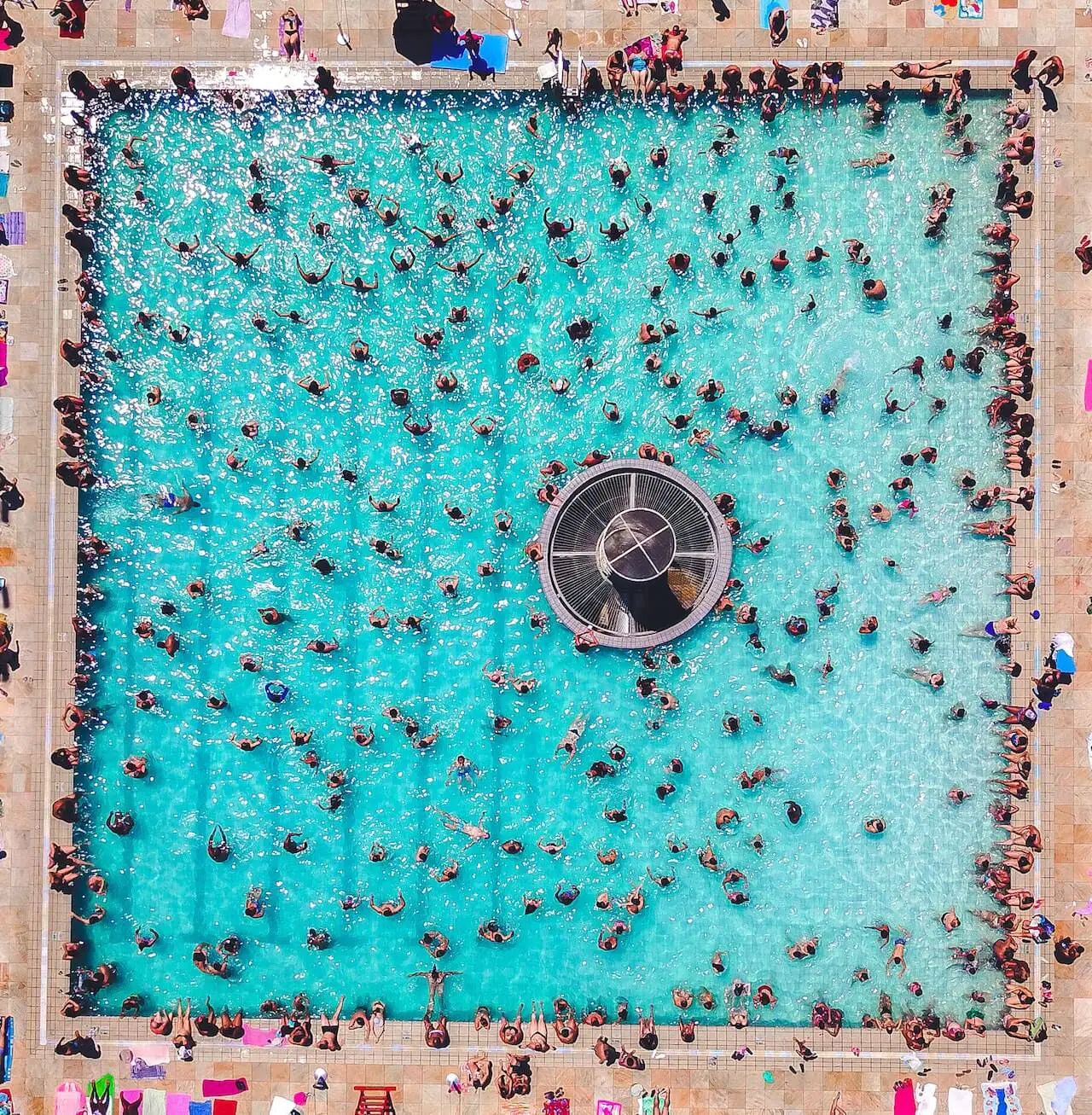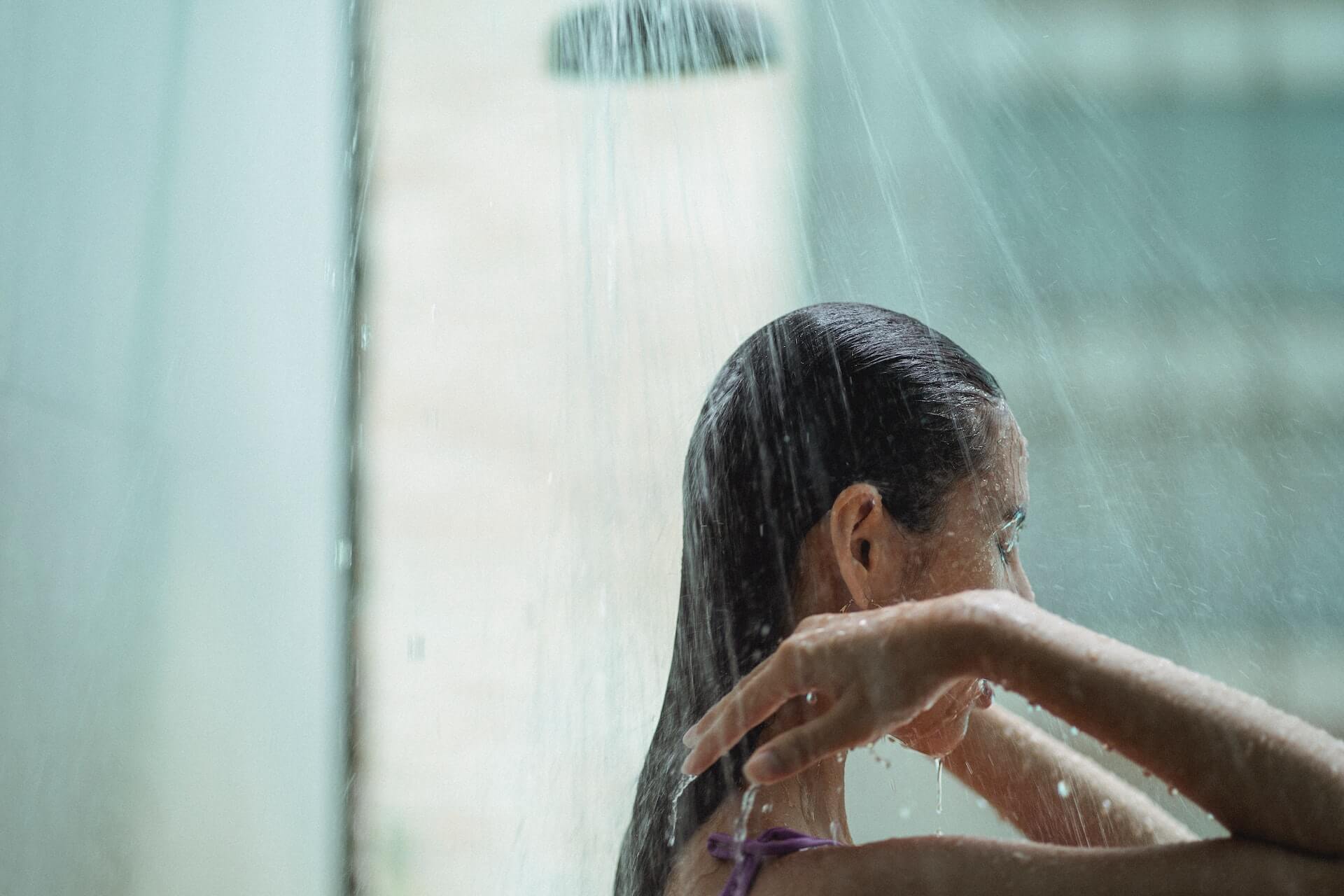Since swimming pools are disinfected using chlorine, you may be under the impression that swimming in it can help disinfect or clean you. Is there any truth to this line of thinking?

Swimming in a chlorinated pool doesn’t “clean” you per se. It takes time for chlorine to eliminate the germs, viruses, and other disease-causing microorganisms in the pool and on your skin. Plus, it is not as effective as showering at removing dirt, sweat, oils, and dead skin cells. Thus, you should still shower after swimming.
Keep reading on to learn about what exactly the chlorine in a swimming pool is doing for you, and why you should still shower both before and after swimming for optimal hygiene.
How clean are swimming pools?
Swimming pools, especially public ones, contain a lot of germs, dirt, and contaminants brought in by swimmers. This is exactly why chlorine and other pool sanitizers are used. These chemicals work to neutralize a lot of the harmful bacteria and viruses that can be present in the water.
Even though swimming in a chlorinated pool can technically clean you to an extent, what this means is that the chlorine can kill some of the microorganisms that might be on your skin, but not all.
However, this doesn’t necessarily mean you’re emerging from the pool cleaner than you were before. While the chlorine is doing its job, you’re also potentially being exposed to other contaminants in the water that have yet to be eliminated by the chlorine.
How quickly does chlorine kill bacteria in pool water?
The rate at which chlorine kills bacteria in pool water can vary depending on the concentration of chlorine and the type of bacteria.
However, in general, chlorine can kill most bacteria in a pool within minutes. For instance, E. coli, a common type of bacteria, can be killed by chlorine within less than a minute under ideal conditions (assuming the pool water chemistry is balanced and there is adequate free chlorine remaining).
With that said, there are some organisms that are more resistant to chlorine. For example, the parasite Cryptosporidium, which can cause diarrhea, is highly resistant to chlorine and can survive even in a properly chlorinated pool for several days.
Can I just swim in a pool instead of showering?

While swimming in a chlorinated pool can eliminate some bacteria and other microorganisms on your skin, it’s not a substitute for a regular shower. Here’s why:
- Chlorine doesn’t remove everything: Chlorine doesn’t get rid of dirt, oils, and dead skin cells. These can accumulate on your skin and need to be washed off properly.
- Chlorine can be harsh on your skin and hair: While chlorine is great at killing bacteria, it can also strip your skin and hair of their natural oils, leading to dryness and irritation. If you have sensitive skin or hair, this can be a particular problem. A proper shower with soap and shampoo can clean you without causing this dryness.
- The smell of chlorine can linger: After a swim in a chlorinated pool, you may notice a distinctive chlorine smell. This odor can stick to your skin and hair. A shower after swimming helps remove the chlorine and its smell.
- It’s important for pool hygiene: One of the reasons why you’re encouraged to take a shower before swimming is to wash off sweat, oils, and other contaminants. These can react with chlorine, reducing its effectiveness and potentially causing discomfort to other swimmers (red eyes, itchy skin, etc).
Why is it recommended to shower after swimming?
- To remove chlorine and other pool chemicals: While chlorine and other pool chemicals are great for keeping pool water safe, they can be harsh on your skin and hair. Showering after swimming helps to remove these.
- To wash off any contaminants you might have picked up in the pool: Even with chlorine and other sanitizers at work, it’s possible to pick up bacteria, algae, or other contaminants from the pool water, especially if it’s a heavily used public pool. Showering afterwards helps ensure you’re clean.
- To remove any dirt or sweat that wasn’t cleaned by the pool water: While the pool water might have cleaned off some superficial dirt or sweat, it’s not as effective as soap and water at cleaning your skin.
In other words, the recommendation to shower after swimming isn’t so much about the pool “being dirty,” but more about ensuring you’re properly clean and not exposing your skin and hair to pool chemicals for longer than necessary.
It’s worth noting, too, that a well-maintained pool with properly balanced chemicals and filtration should be relatively clean. Pool maintenance professionals work hard to ensure the water is as safe and clean as possible.
However, public pools can still be subject to a lot of contaminants simply due to the number of people using them. As effective as chlorine is, it doesn’t work miracles, so you should still take steps to clean yourself after swimming.
Would swimming in a pool with an open wound disinfect it?
While chlorine is a disinfectant, swimming in a chlorinated pool with an open wound is not recommended. Here’s why:
- Potential infection risk: Even with chlorine in the water, pools can contain bacteria, viruses, or other microorganisms that could enter the wound and cause an infection. As mentioned above, not all microorganisms are quickly killed by chlorine.
- Chlorine can delay healing: Chlorine can be harsh on the skin and may actually delay the healing process of the wound. It can cause tissue damage and dry out the wound, which is not conducive to healing.
- Potential harm to others: If you swim with an open wound, you could potentially introduce blood-borne pathogens into the pool, which could pose a risk to others.
So, while you might think that the chlorine would act similarly to hydrogen peroxide or rubbing alcohol in cleaning a wound, it’s not the same.
If you have a cut or scrape, it’s better to clean it with warm water and soap, apply an antibiotic ointment, and cover it with a bandage. And if the wound is large, deep, or doesn’t stop bleeding, you should seek medical attention.
So there you have it. If you thought that all bacteria and microorganisms were instantly eliminated upon coming into contact with chlorine, you’re mistaken, and the pool water is not as clean as it seems. So keep taking those showers and don’t rely on swimming in a chlorine pool to clean you.
Sources:
